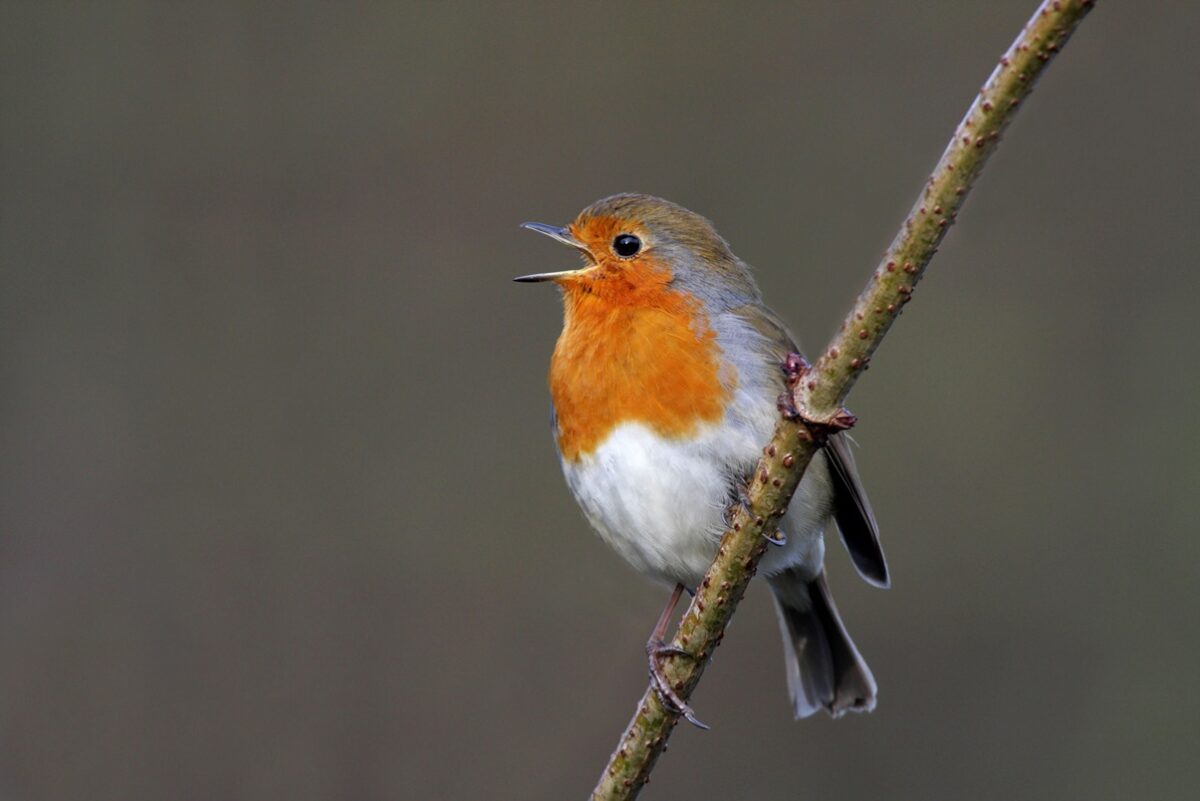What can be better than waking up to numerous birds singing around your backyard? Without a doubt, this ensures an excellent day ahead! But do the birds sing for our enjoyment? Or maybe for theirs? Or is this something they do to survive?
Birds do not typically sing to materialize their happiness. They sign to defend territories, attract mates, and coordinate egg and offspring care.
If you’re eager to learn how to distinguish between bird songs and bird calls, discover more about a bird’s singing behavior, and understand why birds sing in the morning, keep reading, as we have the answers!
Table of Contents
Birds Songs vs. Bird Calls: What’s the Difference?
Before discussing the reasons behind a bird’s song, we must clarify the difference between songs and calls, as the two aren’t synonyms.
The general rule is that bird songs are more complex and usually longer than bird calls. However, as with any rules, there are exceptions, as not all bird songs are highly melodic.
Another way to distinguish a song from a call is to judge depending on when it’s produced. Songs are often heard during the breeding season, as they’re associated with courtship, mating, and territoriality, while calls are produced as alarming sounds or communication throughout the year.
Additionally, birds possess a much larger range of calls than songs. Northern cardinals, for example, are known to produce 16 different calls!
Another essential thing to mention in this discussion is that, besides the songbird group (Passeri), only a few other birds can produce complex songs as their syrinx (the vocal organ) isn’t as well-developed as in songbirds. On the other hand, they produce calls easily.
In the end, although we know the theory, we may not be able to distinguish the two right away, considering that some birds’ songs aren’t melodic at all, and not even ornithologists can distinguish them at times. However, there’s no shame in trying, right?!

Why Do Birds Sing?
Now that we know what a bird song is, let’s discover why these adorable creatures perform the musicals that brighten our spring mornings!
1. Territoriality
Some birds are highly territorial, especially before or during the breeding season. Therefore, they rely on complex songs to negotiate territories.
Scientists suggest that songs play an important role in this process because their quality indicates how well-prepared the rivals are and whether the others stand a chance against them.
Although it has been historically thought that only males sing to defend their territories, recent research shows that females can also do so.
This has been documented in Venezuelan troupials, which live in the tropics. Studies have shown that female Venezuelan troupials sing year-round to defend their territories.
2. Courtship
Songs play a significant role in sexual selection. Once the breeding season starts, males are on the lookout for females they can mate with, so they start performing complex songs to attract them.
It is believed that females pay attention to the song’s complexity and strength and choose a mate depending on this. The song quality indicates the male’s health, age, and strength, and, therefore, how well it will provide for his family.
Although rare, some species (primarily those living in the tropics) engage in something called courtship duets, which implies that both the male and the female will sing to strengthen their bond and show their commitment to each other. They may sing synchronously or alternately. During these duets, both birds may also perform courtship dances.
3. Offspring Care
Some bird species rely on their songs to coordinate incubation and baby care. This has been observed in black-headed grosbeaks. Although males and females have different songs, they both sing from the nest during incubation and baby care.
Black-headed grosbeak chicks also sing to their mother when they ask for food. This behavior is also known in northern cardinals – the parents and the chicks communicate through their songs, and the chicks are known to learn their parents’ vocalizations and respond only to those.
Do Birds Sing Because They Are Happy?
Although it has been demonstrated that birds sing to defend their territories and for mating purposes, scientists haven’t been able to confirm how happy they are while doing this. They may sing out of contentment when they find a mate (that is, after successfully performing courtship songs), but we’ll probably never know the whole truth.
Are Birds Talking When They Sing?
To a certain extent, we can say that birds do talk to each other through their songs.
While picking up the sounds produced by the same species is probably an innate understanding, inter-species call recognition is most likely learned.
Ornithologists confirmed this by checking whether two superb-fairy wrens living in different habitats could understand the alarm calls of noisy miners. The results showed that only the superb fairy-wrens that lived in the same habitat as noisy miners could recognize their calls.
Why Do Birds Sing in the Morning and Evening?
It’s believed that birds choose to sing in the morning and evening because that’s when the world is the most quiet. A bird’s song can be heard much clearer in the morning and evening. In the afternoon, they’re silenced by all the city noises.
Therefore, birds use less energy by singing in the morning and ensure that their songs are heard even by the birds living far away. This way, they inform their mates of their availability and the rivals that they’re still present in the territories they’ve claimed.
